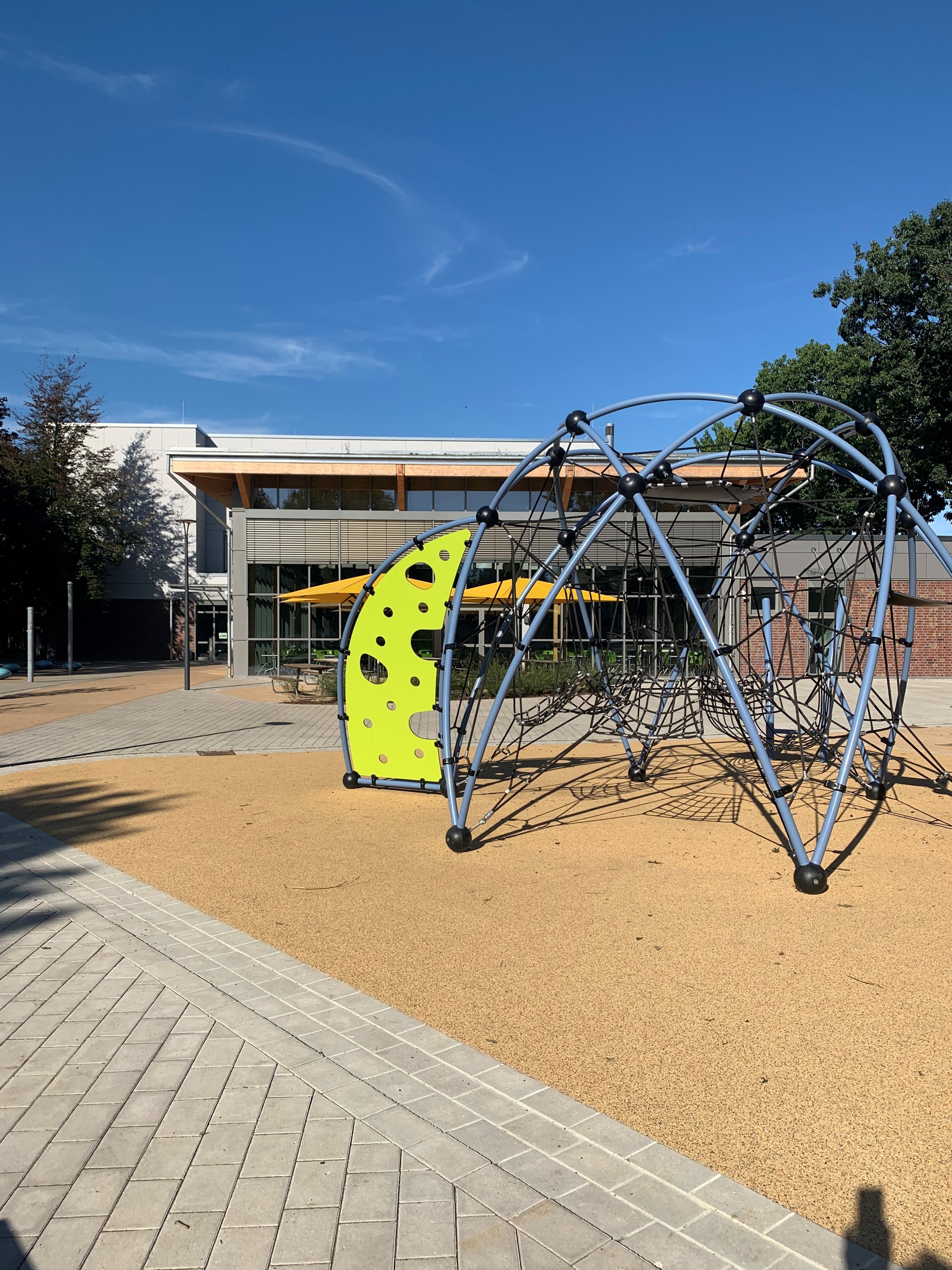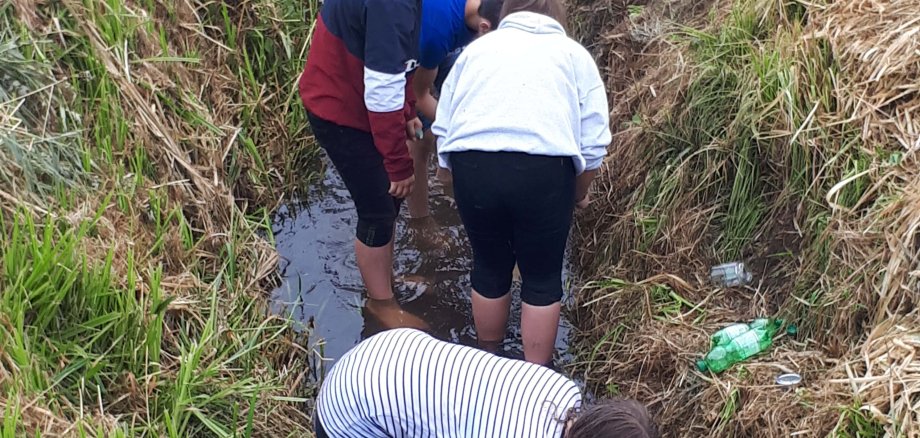Class 5:
- Visit of the Eperan beekeeper Scherping and action-oriented exchange about the functioning of a bee colony and benefits and importance for the environment and people.
- Visit to Entsorgungsgesellschaft Westmünsterland mbH (EGW). Tour of the site and information about waste separation and disposal. Afterwards, independent production of recycled paper.
- Visit to the Biological Station Zwillbrock e.V.
Class 6:
Cooperation with the Fisheries Association NRW: Investigation of the local river Dinkel for native flora and fauna. From 2019, the project will be co-supervised by science teachers Markus Koepe , Lucia Twelbeck and Hendrick Grotholt.
Class 7:
Visit to the "Body and Grips Mobile" of the Red Cross Youth in the DRK-Landesverband Westfalen-Lippe e.V. The Body+Grips Mobile tours as a mobile emergency vehicle through Westfalen-Lippe and is dedicated to the topic of health promotion with its "Gesund mit Grips" (Healthy with Grips) course and addresses adolescents between eleven and 15 years of age. It is equipped with a wide range of materials that can be used to set up an unusual course of stations with little preparation. The action day invites adolescents to learn about exercise, nutrition, I+You (social interaction), sexuality, addiction, body and mind, and to actively experiment. It serves the different prerequisites of the students and is supervised by young people.
Class 8:
The eighth grade deals with the content field of sustainable agriculture and visited the organic farm Welle in this context. Here, the students learn a lot about free-range chicken farming and sustainable potato cultivation in theory and practice.
- Visit to the sewage treatment plant
Class 9:
- Drug prevention
- Visit to the sewage treatment plant
- Roadside mapping (insects and flowers)
- Work sex educators of the paritätischen Bund from Ahaus on the topics "Sexual self-determination", "Prevention sexual violence", prevention work "STDs
In addition, all classes independently prepared and followed up on the topic of sustainable agriculture and healthy nutrition. This also included a breakfast with regional products. All classes prepared for their topics well in advance in interdisciplinary lessons. Among other things, roadsides are mapped, trash collection campaigns are started, and individual classes actively deal with the topic of insect extinction or the identification of insect and flower species.

